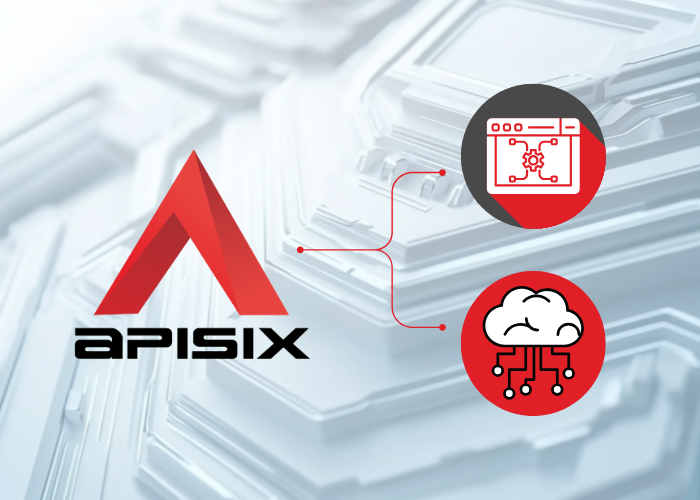Computer applications are developed using programming languages designed for that purpose. Similarly, cloud programming requires data-oriented languages instead of general-purpose ones in order to yield the best results. This article is a compilation of the top 5 cloud programming languages along with their characteristics and advantages. You will also understand the concept of cloud computing and the best practices for developing cloud-based products.
What is cloud computing?
Cloud computing is the process of using the power of the internet to deliver computing services. This eliminates the tight geographical coupling between the user and the service, as cloud computing services and applications can function without an elaborate physical infrastructure. In today’s demanding business world, cloud computing offers robust capabilities such as software applications and storage at the click of a button.
To be more specific, the cloud offers benefits such as flexibility, agility, scalability, and cost-friendly computing. The reduced reliance on hardware also lowers costs and the frequency of maintenance activities. This allows businesses to turn their attention towards strategic initiatives that contribute to business expansion.
Programming languages for cloud computing
Cloud computing is the provision of computing services such as servers, storage, databases, networks, software, analysis, intelligence, and more, over the Internet to deliver faster innovation, flexible resources, and economies of scale.
It consists of several technologies that currently have a great impact on the employability of software developers. The cloud can be exploited in countless ways: software as a service, platform as a service, and infrastructure as a service, among others.
Cloud computing has meant a shift from the traditional way of using technology resources. Its advantages include lower cost, increased speed, global scale, higher productivity, and enhanced security.
The following programming languages will help you stand out in the field of cloud programming:
Java
Is Java used in cloud computing? Yes, Java is not only a general-purpose programming language but also a prevalent cloud computing language. Java can be used to deploy applications on private, public, and hybrid clouds. It is also compatible with many operating systems, allowing the creation of portable software that can be seamlessly migrated from one environment to another. The Java-based framework Spring also has an extension known as Spring Cloud which is exclusively for cloud-native application development.
Its popularity among developers is overwhelming; it is used by more than 10 million programmers and executed on more than 15 billion terminals worldwide.
The versatility of Java allows it to be used in the design of applications for Android, desktop computers, websites, and games. This makes it suitable for almost any programming task.
These are the main advantages of Java:
- It is easy to learn.
- It is designed to be used without complications.
- It is object-oriented, allowing the creation of modular programs and reusable codes.
- It is platform-independent, making it easily transferable from one computer system to another.
The ability to run the same program on many different systems makes Java run smoothly in cloud computing environments. Due to its robustness, ease of use, multi-platform capabilities, and security features, it occupies a privileged position among programmers who design Internet solutions.
-Find out more: Programming languages you should learn in 2022-
ASP.NET
ASP.NET is a web-application framework and developer platform designed by Microsoft to create websites and web applications with many functions. It builds upon the existing capabilities of the .NET platform also developed by Microsoft. Whilst .NET encapsulates a collection of libraries, tools, and programming languages (particularly C#, F#, and Visual Basic, making it language-independent), ASP.NET adds the following features:
- Libraries and templates to manage logins and authentication methods (such as multi-factor authentication).
- Razor, a programming syntax used to simplify the construction of dynamic web pages with C#.
- Editing features like syntax highlighting and intelligent completion of snippets.
- Libraries that include basic web patterns like Model View Controller (MVC).
- F# and C# for web request processing.
ASP.NET is characterised by its high-end solutions to common web development problems, offering features such as the creation of dynamic web pages that can be viewed in different browsers. This web framework is open-source and allows the design of reliable and reusable applications, making it a popular and relatively easy option to use. Some of its benefits are:
- It secures applications using built-in Windows authentication.
- It reduces long lines of code in the development of large applications.
- It creates dynamic web pages without inconvenience.
- It is language-independent and easy to implement.
- Applications are highly monitored and managed.
- It has its own built-in caching functions.
- Content and logic are separated to reduce inconvenience.
PHP
PHP is a programming language widely used for web development and cloud computing because it is easy to learn and manipulate. Therefore, it is popularly implemented while automating websites and other similar applications.
This language can run on UNIX and Windows servers and has a powerful output buffer. Its dynamism stands out when designing applications with dynamic elements.
PHP works with a large number of database management systems, so it runs on the most popular web servers and is available for many different operating systems. It is a completely object-oriented language and helps to build large and complex web applications.
Here are some advantages of PHP that will convince you to learn it:
- Cheap and affordable website hosting.
- Facilitates safe, fast, and reliable development of web applications.
- Collaborates smoothly with HTML.
- Great learnability.
- Flexible, allowing programmers to easily modify code to include features instead of writing code from scratch every time.
This article may interest you: “Programming Languages: Types and Features”
Python
Is Python one of the cloud programming languages? Despite Python’s identity as a general-purpose programming language, it is utilised in many cloud computing environments. It is a top choice for developing web applications through a range of libraries and versatile frameworks like Flask and Django. It can also be used to interact with cloud platforms and its resources such as virtual machines and storage.
Python stands out as a high-level language created to be readable without difficulties, enabling beginners to start programming with it very quickly. In over 30 years of its existence, it has remained among the preferred languages of software engineers.
It is an attractive programming language that supports development possibilities in various fields, thanks to elements that simplify the creation of web applications, APIs, academic programs, and data science initiatives.
Python combines several features that improves programming, such as:
- The presence of third-party modules.
- Extensive support libraries.
- Open source and community development.
- Ease of learning and available support.
- Easy-to-use data structures.
- Productivity and speed.
It is implemented in the following fields and more:
- GUI-based desktop applications.
- Image processing and graphic design applications.
- Scientific and computational applications.
- Games.
- Web frameworks and applications.
- Business applications.
- Operating systems.
- Language development.
Learning Python ensures the possibility of getting a job for a long time, as it has a significant impact as a cloud programming language.
Ruby
Ruby is an ideal cloud computing programming language for beginners because it is easy to use and to master. It also offers significant benefits due to its huge ecosystem.
Mastering Ruby opens many possibilities in the field of cloud computing because this language has abundant resources to develop different applications, with more than 60,000 libraries and frameworks to choose from. In addition, an active community of developers help in the event of problems with the language.
The positive attributes of Ruby are:
- Easily learnable, making it suitable for novice developers.
- Flexibility, making it easier to use.
- Secures web applications using its inbuilt functionalities.
- Open source, making it more adaptable and accessible.
- Multi-threading support for greater processing speeds.
Best practices for developing cloud-based products
Before you progress to developing cloud-based products, it’s important to make the following considerations:
Scalability
A cloud product must offer high levels of scalability. Use the elasticity of cloud infrastructures to your advantage and provide the user flexibility over their resource consumption.
Security
Security should be your top priority. Implement the best data encryption algorithms, authentication mechanisms, and monitoring technologies to maintain the integrity of data that passes through your service.
Cost
Implement consumption-based pricing models and resource management techniques such as auto-scaling to minimise the costs that your users may have to face.
Conclusion
Cloud programming continues to expand in this technology-driven world. New languages have emerged in addition to traditional ones, offering great advantages for the design and execution of different applications. Wherever required, developers should leverage the full potential of more recent programming languages to deliver more effective and innovative solutions.
Are you looking for your own integration solution? Our experts and developers can lend a hand.







